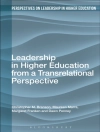The rise of knowledge workers has been widely heralded but there has been little research on their actual learning practices. This book provides the first systematic comparative study of the formal and informal learning of different professional groups, with a particular focus on teachers. Drawing on unique large-scale national surveys of working conditions and learning practices in Canada, teachers are compared with doctors and lawyers, nurses, engineers and computer programmers, as well as other professionals. The class positions of professionals (self-employed, employers, managers or employees) and their different collective bargaining and organizational decision-making powers are found to have significant effects on their formal learning and professional development (PD). Teachers’ learning varies according to their professionally-based negotiating and school-based decision-making powers. Two further national surveys of thousands of Canadian classroom teachers as well as more in-depth case studies offer more insight into the array of teachers’ formal and informal learning activities. Analyses of regular full-time teachers, occasional teachers and new teachers probe their different learning patterns. The international literature on teacher professional development and related government policies is reviewed and major barriers to job-embedded, ongoing professional learning are identified. Promising alternative forms of integrating teachers’ work and their professional learning are illustrated. Teacher empowerment appears to be an effective means to ensure more integrated professional learning as well as to aid fuller realization of knowledge societies and knowledge economies.
Tabella dei contenuti
List of Figures and Tables; About the Authors; Acknowledgements; Introduction: Teacher Learning and Power in the Knowledge Society; Introduction; The NALL/WALL Teachers’ Project; Organization of Text; Section A: Comparative Perspectives on Professionals’
Work and Learning; Section B: Teachers’ Work and Learning; Section C: Implications and Applications; SECTION A: COMPARATIVE PERSPECTIVES ON PROFESSIONALS’ WORK AND LEARNING; 1. Teachers and Other Professionals: A Comparison of Professionals’ Occupational Requirements, Class Positions and Workplace Power; Introduction; Conventional Definitions; Review of Prior Research on Professional Work; Dimensions of Power over Work; Comparison of Specific Professional Occupations; Demographic Variables; Work Schedules; Professional Occupations’ Control of Entry; Control over Training for Professional Entry; Association Membership; Required Licensing; Professionalization and Workplace Power; Class Analysis of the General Labour Force; Class Analysis of Professional Occupations; Professional Classes and Workplace Power; Class Analysis of Specific Professional Occupations; Concluding Remarks; 2. Teachers’ and Other Professionals’ Learning Practices: A Comparative Analysis; Introduction; Review of Literature; Findings; Job-Related Informal Learning; Further Education and Professional Development Courses; Workplace Power and Further Education; Integration of Further Education and Informal Learning; Concluding Remarks; SECTION B: TEACHERS’ WORK AND LEARNING; 3. Overview of Teachers’ Work and Learning; Introduction; Teachers’ Work; Professional/ism: Autonomy, Power and Control of Teachers’ Work; Schooling Reform; Teacher Knowledge; Formal and Informal Learning;Professional Developmentl; New Teacher Induction; Conclusion; 4. Full-Time Teachers’ Learning: Engagements and Challenges; Introduction; Canadian Teachers’ Engagement with Learning; Formal Learning; Informal Learning; Teacher Perceptions of Changes in Working Conditions; Perceived Changes in Workload Levels; Teacher Stress; Inhibitors and Reactive Modes of Learning; Teachers’ Learning and ‘Autonomy’; Conclusions; 5. Occasional Teachers’ Job-Related Learning; Introduction; Occasional Teachers; Growth in the Contingent Teacher Workforce; Teacher Workforce Hierarchy; Occasional Teaching, Authority and Learning; Types of Occasional Teachers; Internationally Educated Teachers (IETs); Career Occasionals; Retirees Occasional Teachers’ Job-Related Learning: Formal and Informal; Formal Learning; Informal Learning; Teacher Workforce Hierarchy and Learning; Conclusion; 6. Beginning Teachers; Introduction; New Teacher Engagement in Formal Learning; New Teacher Engagement in Informal Learning; New Teacher Workload; New Teacher Stress at Work; New Teachers: Their Personal/Family Lives and Career Trajectories; Issues of Autonomy and Control for New Teachers; New Teachers: Possibilities for Innovative Learning Initiatives; SECTION C: IMPLICATIONS AND APPLICATIONS; 7. Professional Control and Professional Learning: Some Policy Implications; Introduction; The Canadian Context: A Strong Unionized, Yet Strictly Regulated, Profession; Education Reform Agendas; Teacher Power in the Face of Reform Agendas; Necessary Policy Changes to Foster Teacher Professional Learning; We Need to Rethink Our Traditional Approaches to Formal Learning; We Need to Make Time During the Work Day for Informal, Ongoing Teacher Learning; Some Successful System-Wide Programs; The Ontario New Teacher Induction Program; The Teacher Learning and Leadership Program; 8. Case Study: Job-Embedded Learning for Beginning Teachers in the Toronto District School Board; Editors’ Note; Purposeand Goals of the Beginning Teachers Program; Beyond Survival: The Retention Myth; Strategies/Actions Taken; Levels of Support; Level 1: School-Based Mentoring; Level 2: Family of Schools Mentoring; Level 3: Central System Mentoring; Impact/Evidence/Results; Analysis: Personalization, Choice and Authenticity; Challenges and Learning; Summary of Evolution and Scope of TDSB Beginning Teachers Program; Conclusion: Reconsidering Teacher Learning and Power; Introduction; Teachers as Professionals and Professional Learners; Empowering Teachers for Greater Professional Learning; Appendix: Research Methodology; Who We Are; The Teacher Project Research Methods; National Survey Questionnaires; Time-Study Diaries; In-Depth Telephone Interviews; Focus Groups; Face-to-face Individual Interviews; Research Limitations; Endnotes; Bibliography.












